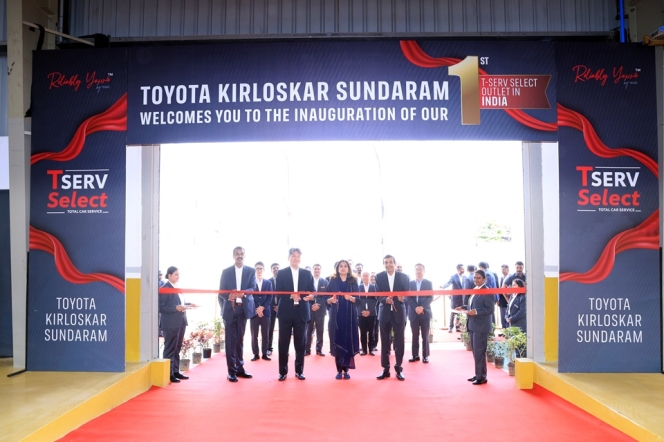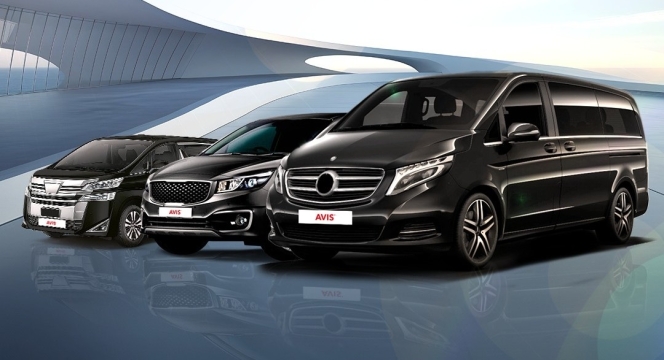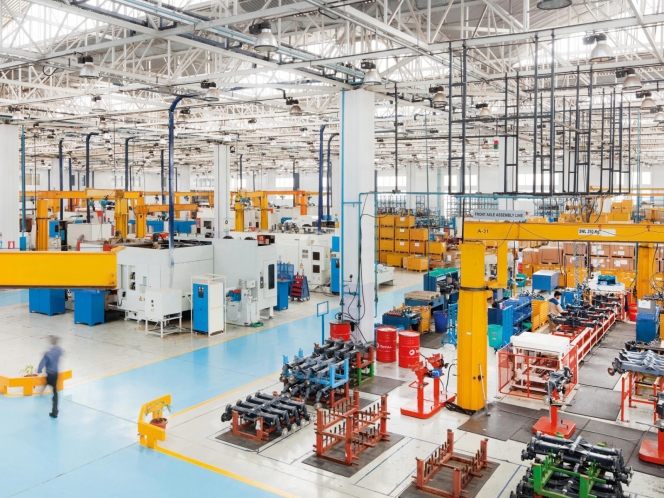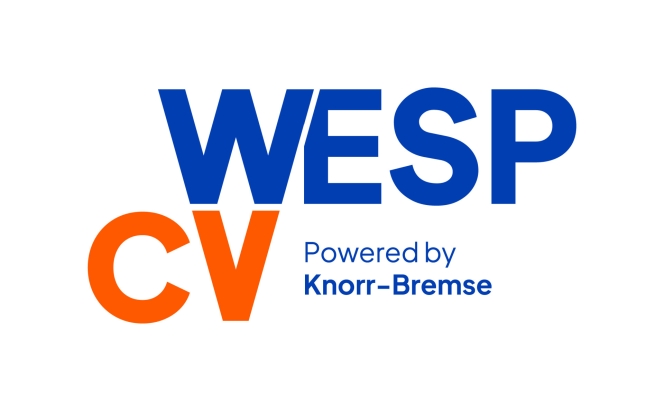
Early windshields were made of ordinary window glass, but that could lead to serious injuries in the event of a crash. Later versions were made of toughened glass and were fitted in the frame using a rubber seal. This type of glass shattered into mostly harmless fragments when the windshield broke but was prone to shattering from a simple stone chip.
Modern windshields are generally made of two curved sheets of tempered glass, with a PVB plastic layer laminated between them for safety, and bonded into the window frame. If one layer of glass breaks, the laminate and the inside layer of glass hold the windshield together, keeping pieces of glass from injuring occupants of the car or falling on the road.
The laminated safety glass for windshield first became available in France from 1911, and some high-end American auto manufacturers began to use it in 1913. Henry Ford ordered the use of laminated glass on all of his vehicles from 1919.
Repair or Replacement?
You are driving on a highway, minding your own business, and …. POW! After you have recovered from the unexpected hit, you know that something hit the windshield and there may be a visible sign of damage, such as a pit or crack. It’s generally not dangerous to drive with a small crack in the windshield. But with time, as moisture, dirt and even windshield washer fluid can seep into the glass sandwich layers, windshield becomes discoloured and further decreases visibility.
 Safety Tip
Safety Tip
It’s important to avoid pressing on a broken windshield from the interior of the car. Because of its concave shape, a crack can severely weaken the windshield’s structural integrity, and the glass is likely to continue cracking if pressure is placed on it from the inside.
According to the U.S. National Windshield Repair Association (www. NWRASSN.org), a division of the Auto Glass Safety Council, many types of stone damage can be successfully repaired. Circular bullseyes, crack chips, dings, pits, star-shaped breaks and linear cracks up to six centimetres in length can be repaired without removing the glass, eliminating the risk of leaking or bonding problems sometimes associated with replacement.
Still, damaged glass is a serious issue and may render a car unsafe to drive. Therefore, it should be repaired or replaced as soon as possible for two important reasons:
Windshields weakened by damage provide less protection.
Cracked windshields decrease visibility.
Though not an immediate danger, if the crack is large or if it is near or touching the edge of the windshield, the glass may have to be replaced and driving the car is not recommended.
Buyer Be Aware!
Original equipment (OE) windshields have specified surface quality and built-in stress level. Many are solar-optimised to block UV, reduce interior heat buildup, and have better acoustic attenuation for a quieter ride.
The aftermarket windshields may be missing some or all of these qualities, and consumers may not be aware of these shortcomings.
Another difference between OE and aftermarket glass is residual stress levels around the perimeter called the ‘Weak Spot’ which causes windshield to crack from the edge.
A windshield repair costs much less than a replacement. A chip repair prevents a crack, and a crack repair prevents having to replace the windshield. Also, don’t be talked into ‘replacement’ if the damage could be ‘repaired.’ Just make sure, whether you have a chip or a crack and get it repaired ASAP.
The National Windshield Repair Association is recognised nationally and worldwide as a professional source of reliable information on the windshield repair industry. Their education and certification programme shows that those certified have successfully completed proficiency training to repair and replace laminated auto glass in compliance with ANSI/NWRA/ROLAGS 001-2014.
Whether you choose to drive to a glass shop or have a repair technician come to you, the choice is yours! Many companies offer mobile auto glass service at your home or office to perform needed windshield repair or replacement. It is especially convenient during the current pandemic lockdown.
Recycling Windshield Glass
In the US, about 13-14 million windshields are replaced each year, creating an environmental need for recycling. Although the composite nature of the windshield glass makes it difficult to recycle it, some patented technologies are available. Damaged windshields are processed through a crusher, which separates the glass from PVB interlayer.
Approximately 90 percent becomes ‘glass cullet,’ which can then be recycled into a number of new products including fibreglass insulation. Roughly seven percent becomes PVB plastic scrap, which is reprocessed into pellets and used for a number of new applications, such as carpet backing, paint and primer, and other plastic products. (MT)
- Toyota Kirloskar Sundaram Automotive Solutions
- TSERV Select
- Kirloskar Systems
- Trichur Sundaram Santhanam Family
- TSSF Group
- Toyota Kirloskar Motor
- Rajesh Menon
- Geetanjali Kirloskar
- Srivats Ram
- Tadashi Asazuma
Toyota Kirloskar Sundaram Automotive Solutions Launches TSERV Select Multi-Brand Outlet In Bengaluru
- By MT Bureau
- February 02, 2026

Toyota Kirloskar Sundaram Automotive Solutions has inaugurated its first ‘TSERV Select’ multi-brand service outlet in KR Puram, Bengaluru. The company is a joint venture between Kirloskar Systems, the Trichur Sundaram Santhanam Family (TSSF Group) and Toyota Kirloskar Motor (TKM).
The JV targets the growing demand for organised and transparent vehicle maintenance in India's automotive market. The outlet features diagnostic tools and a workforce trained to provide services for vehicles of all brands.
The company has appointed Rajesh Menon as its President, who comes with over 35 years of experience in the automobile sector. He will oversee the development of a service network intended for various Indian cities.
In addition to the company-owned TSERV Select format, the business operates a network of 150 third-party multi-brand outlets under the ‘TSERV’ trademark. This dual-network approach is designed to increase accessibility while maintaining service standards across different markets.
Geetanjali Kirloskar, Chairperson and Managing Director, Kirloskar Systems, said, “The inauguration of our first service outlet marks an important milestone in building a customer-friendly automotive service platform. As Indian customers increasingly value transparency and trust, our focus is on delivering high-quality and dependable service across vehicle brands.”
Srivats Ram, Director, TSSF Group, said, “The launch of this facility reflects our commitment to making professional vehicle service more accessible and affordable. By addressing the gap between customer expectations and the availability of organized service options, we aim to offer reliable solutions that deliver value across the ownership journey.”
Tadashi Asazuma, Deputy Managing Director, Toyota Kirloskar Motor, said, “The launch of the first TSERV Select outlet marks a significant milestone, reflecting our shared commitment to extending Toyota’s service philosophy through strong and capable local partnerships. As a mobility solutions company, our focus goes beyond vehicles to deliver dependable, end-to-end ownership and service experiences that bring mass happiness to customers. Through disciplined processes, skilled teams, and an unwavering focus on quality, we aim to offer customers a consistent, reliable, and high-standard service experience that builds long-term trust and supports their evolving mobility needs.”
Avis India Introduces Luxury Van Rental Service
- By MT Bureau
- January 28, 2026

Avis India has announced the launch of Avis Luxury Van Rentals, expanding its mobility portfolio to address demand for group travel. The service is aimed at corporate and leisure segments, providing transport for business leaders, families, and teams.
The fleet consists of vehicles including the Mercedes-Benz V-Class, Toyota Vellfire, Kia Carnival, Toyota Coaster and Toyota Commuter. These models allow customers to select vehicles based on group size, with the capacity to accommodate up to 25 passengers. The service is available for intracity and intercity travel and is operated by English-speaking chauffeurs.
Bookings, confirmations and modifications are managed through an in-house technology platform. This system is supported by a 24x7 contact centre intended to provide assistance to users. The launch extends the company's existing suite of mobility solutions, focusing on service standards and management for group movements.
Aman Naagar, Managing Director, Avis India, said, “Avis Luxury Van Rentals reflects our focus on delivering elevated mobility experiences for customers who value comfort, reliability and professional service. The launch is designed to meet the requirements of evolving group travel in the country, and further strengthens our portfolio. The service is designed to accommodate up to 25 passengers and reinforces our commitment to delivering seamless premium mobility solutions, nationally.”
Carraro India Opens First Authorised Service Centre In Faridabad
- By MT Bureau
- January 23, 2026

Carraro India, a subsidiary of the Italian group Carraro, has inaugurated its first authorised service centre in Faridabad, Haryana. This facility is the first of four centres the company plans to establish across India by 2026 to support its expansion in the off-highway vehicle market.
The centre is operated in partnership with Balaji Enterprises and will provide maintenance for driveline systems, including axles and transmissions used in agricultural and construction machinery.
The facility is equipped with diagnostic tools and a stock of genuine spare parts to ensure the repair of equipment. It aims to serve customers in Northern India, reducing downtime for fleet operators and farmers. Carraro India currently operates manufacturing plants in Pune and produces driveline solutions for several original equipment manufacturers (OEMs).
The inauguration in Faridabad marks the start of a network growth strategy. Carraro intends to open three additional centres in locations with high concentrations of off-highway equipment. This initiative is designed to move after-sales support closer to the end-user, providing technical assistance and training for local mechanics.
Andrea Conchetto, CEO, Carraro Group, stated, “The opening of our first authorised service centre in Faridabad is a milestone in our journey to enhance customer experience in India. This facility is a testament to our commitment to providing world-class service and support to our customers. We are confident that this centre will set new benchmarks in service excellence”.
S Krishnan, Managing Director, Carraro India, said, “The Faridabad centre is the first of many such facilities we plan to open across the country. Our goal is to ensure that our customers have access to genuine parts and expert service, regardless of their location. This expansion will help us strengthen our presence in the Indian market and provide better value to our customers”.
“We are proud to partner with Carraro India in this initiative. Our team is trained to provide the best-in-class service to Carraro customers. We look forward to a successful partnership and to serving the needs of the off-highway vehicle industry in this region,” added Balaji Enterprises representative.
 - Ravi Kumar
- Ravi KumarMain is opportunity ko lekar bahut interested hoon aur requirement ke hisaab se join karne ke liye ready hoon
Reply
Knorr-Bremse And WESP-Group Launch JV For Commercial Vehicle Data Services
- By MT Bureau
- January 13, 2026

Knorr-Bremse Systeme für Nutzfahrzeuge and Dutch company WAGH (WESP-Group) have established a joint venture, WESP CV, to develop digital services for the commercial vehicle industry.
The new entity headquartered in Germany will see Knorr-Bremse hold 51 percent stake, while WAGH will hold the remaining 49 percent.
WESP CV will focus on data-driven benchmarking for workshops. By comparing performance indicators, the venture aims to help companies identify operational efficiencies and use data to inform business decisions. The database created through this partnership is intended to provide transparency regarding market potential and product field data for workshops, distributors and industry partners.
The partnership seeks to address industry challenges, such as the shortage of skilled staff, by ensuring workshop employees can operate with higher efficiency through predictive maintenance solutions and integrated data ecosystems.
Alexander Wagner, Vice-President Global Aftermarket/TruckServices, Knorr-Bremse Commercial Vehicles, said, "The founding of WESP CV marks the next milestone toward a holistic and efficient commercial vehicle aftermarket ecosystem. The joint venture combines WESP's expertise in digital services for workshops with Knorr-Bremse's expertise in the commercial vehicle market. We want to support commercial vehicle workshops with data-based consulting services, helping them to identify operational efficiency potential, enable data-based decisions, and exploit previously untapped business opportunities or potential for improvement. This extensive database will not only support commercial vehicle workshops, but also other market participants and industry partners in gaining deeper transparency about market potential and product field data.”
Bas Wintjes, Managing Director, WAGH, said, “In the past months, we have consistently aligned our tools with the key KPIs of the truck, trailer and bus market. One thing has become clear: the fundamental principles remain the same – benchmarking against others enables workshops to achieve targeted improvements. In today’s environment, where it is becoming increasingly difficult to find skilled staff, it is more important than ever to ensure that workshop employees can work efficiently. Data-driven predictive maintenance solutions will play a central role in the future. Particularly valuable is the collaboration between manufacturers, distributors, and workshops: a strong data ecosystem gives all stakeholders the opportunity to measurably enhance their performance. The partnership with Knorr-Bremse is an important step in the further internationalization of WESP-Group. We look forward to combining Knorr-Bremse’s market expertise with our proven, practice-oriented tools.”







Comments (0)
ADD COMMENT